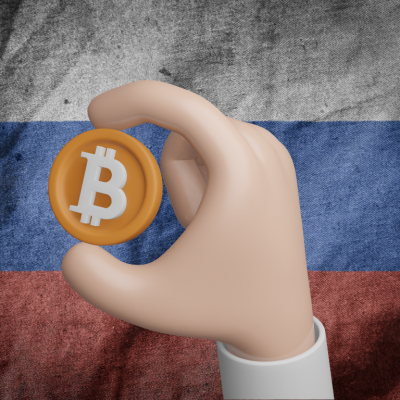Vladimir Putin and his cronies are at it again, defying the West with their continued use of cryptocurrencies. With increased sanctions from countries like France, how long can he run before they finally catch up to him?
Vladimir Putin, the president of Russia, has tried to escape sanctions by using cryptocurrency. However, he is not able to do so because the US government has banned cryptocurrencies.

Most people are unaware that cryptocurrency, whether it’s Bitcoin or Ethereum, is a horrible instrument for dodging sanctions and concealing funds.
The US has slapped tough economic penalties on the Russian government (including President Vladimir Putin), billionaires in Putin’s orbit, and Russian firms intimately affiliated with the Kremlin in reaction to Russia’s brutal invasion of Ukraine.
Sen. Elizabeth Warren (D-MA) retweeted a New York Times piece immediately after the penalties were issued, saying that cryptocurrency might be used to avoid US sanctions.
Warren then advocated for enhanced “scrutiny” of digital assets in a letter to the Treasury Secretary on March 2, joining many who believe crypto and decentralized finance present Putin with a route around US sanctions.
It’s an intriguing narrative, but it’s not true.
Sanctions limit the capacity of U.S. citizens to trade with sanctioned persons or companies. The term “evasion” does not relate to a sanctioned individual’s capacity to hold an asset; rather, it refers to U.S. citizens who break their promise not to interact with or assist transactions with sanctioned persons and corporations.
To be utilized as a weapon for sanctions evasion, digital assets must enable US residents to deal with sanctioned companies without facing repercussions or disclosing their transactions to law enforcement.
That is precisely what digital assets are not capable of. In fact, owing to all of the ways that digital assets might enhance sanctions compliance, they are singularly ill-suited for sanctions evasion when compared to conventional financial markets.
Efforts to date have fallen short.
Despite years of effort and inspection, the conventional financial system has never come close to totally banning criminal actors from using financial services. The illegal economy is huge, according to estimates from the US government and others, reaching well over a trillion dollars and dwarfing the amount of illicit financial activity actually disrupted by law enforcement.
Yes, cryptocurrency may be utilized for nefarious financial activities like sanction evasion. Digital assets, on the other hand, are more difficult to use for criminal objectives at scale than conventional assets.
The Blockchain’s Transparency
What is the reason behind this? The solution has to do with the storage of transaction data in peer-to-peer digital asset transfers. Blockchains, in particular transparent blockchains, establish a permanent and unchangeable record of transactions.
There are several cases of criminals being misled by this openness. In recent weeks, on-chain data has been used to solve two of the greatest cryptocurrency breaches in history: the Bitfinex attack and the DAO hack.
Those attacks occurred years ago, and the information required to trace down the perpetrators has now been made publicly accessible to law enforcement—and anybody else with an internet connection.
Software that is sophisticated
In addition, software tools for evaluating this vast volume of on-chain data are getting more advanced. Cryptocurrency firms, as well as the Department of Justice, which just announced the launch of a cryptocurrency enforcement section, are already using these technologies.
The government is already on the watch for crypto-based illegal financial activities, such as sanctions evasion, and has honed its skills in this area. To recapitulate, in the cryptocurrency realm, sanctions compliance is alive and thriving.
Finally, some ideas
If Senator Warren and other congressional leaders are sincerely worried about cryptocurrencies allowing large-scale sanctions evasion, they can take actions to prevent this from happening. The most crucial of them is ensuring that crypto networks and decentralized finance thrive in the United States.
This will provide the US government and law enforcement the greatest chance to create and execute the most effective sanctions compliance tools in digital asset markets, as well as enhance cooperation between market players and law enforcement in the US.
Instead than guessing without proof about how criminals could use cryptocurrency to evade US sanctions, congressional leaders should voice their support for the crypto industry’s already substantial sanctions compliance efforts and offer to assist enhance them.
The “uma crypto” is a cryptocurrency that was created by the Russian President Vladimir Putin. The currency has been used to bypass sanctions imposed on Russia by the United States and European Union.




